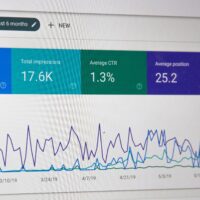Customer relationship management (CRM) is a strategy that businesses use to manage interactions with customers and potential customers. CRM helps organisations streamline processes, build customer relationships, increase sales, improve customer service, and increase profitability.
A CRM system is a software application that helps businesses manage customer data. This data can include contact information, purchase history, service records, and other relevant information. CRM systems can help businesses track customer interactions, identify trends, and make better decisions about marketing to and serving their customers.

Customer Relationship Management: Key Components | QNET |
CRM is an important tool for businesses of all sizes. By implementing a CRM system, businesses can improve customer relationships, increase sales, and improve profitability. The key components of CRM include:
Customer Data Management: CRM systems gather, store, and organise customer data from various sources, such as sales, marketing, customer service, and more. This data can include contact information, purchase history, preferences, interactions, and more.
Sales Automation: CRM software can help automate sales processes, such as lead management, pipeline tracking, and sales forecasting. This enables sales teams to manage their prospects and opportunities better.
Marketing Automation: CRM systems often include features for automating marketing campaigns, email communications, and customer segmentation. This allows businesses to deliver targeted and relevant messages to different customer segments.
Customer Service and Support: CRM platforms enable companies to provide better customer service by tracking and managing customer inquiries, complaints, and requests. It helps customer service representatives access customer information quickly and provide timely and accurate assistance.
Analytics and Reporting: CRM systems offer reporting and analytical tools to help businesses gain insights into customer behaviour, trends, and preferences. This information can be used to make informed decisions and improve business strategies.
Integration: CRM software can integrate with other systems, such as ERP (Enterprise Resource Planning) systems, marketing platforms, and communication tools, to create a seamless flow of information across different departments.
Personalisation: Another key component is that CRM enables businesses to personalise customer experiences by tailoring interactions and offers based on individual preferences and behaviours. This can enhance customer engagement and loyalty.
Collaboration: CRM facilitates collaboration among departments, such as sales, marketing, and customer service, by providing a centralised platform for sharing customer information and insights.
Customer Segmentation: CRM systems allow businesses to segment their customer base based on various criteria, such as demographics, purchase history, and engagement level. This segmentation helps in targeting the right customers with the right messaging.
Lead and Opportunity Management: CRM software helps track and manage leads through the sales funnel, allowing sales teams to prioritise and nurture leads that are more likely to convert into customers.
As mentioned earlier, Customer Relationship Management (CRM) refers to a strategy and set of practices businesses use to manage their interactions and customer relationships throughout their entire lifecycle. Additionally, CRM aims to improve customer satisfaction, loyalty, and overall business profitability by optimising interactions and delivering personalised experiences.
Benefits of CRM | QNET |
Here are some of the benefits of using CRM:
Improved customer service: CRM systems can help businesses provide better customer service by providing a centralised view of customer data. This data can be used to resolve customer issues more quickly and efficiently.
Increased sales: CRM systems can help businesses increase sales by identifying potential customers and targeting them with relevant marketing messages. They can also help businesses track the effectiveness of their sales campaigns.
Enhanced customer experience: CRM systems can help businesses enhance the customer experience by providing personalised interactions and timely support. This can lead to increased customer loyalty and repeat business.
Improved decision-making: CRM systems can help businesses make better decisions by providing insights into their customer data. Furthermore, this data can be used to identify trends, improve marketing campaigns, and optimise sales processes.
Conclusion
In conclusion, effective CRM implementation requires careful planning, data accuracy, user training, and ongoing maintenance. It can be used by various industries, including retail, e-commerce, finance, healthcare, and more. It also enhances customer satisfaction, streamline processes, and drive business growth. Lastly, when choosing a CRM system, it is important to consider your specific needs and requirements. You should also consider the size of your business, your budget, and your level of technical expertise.













